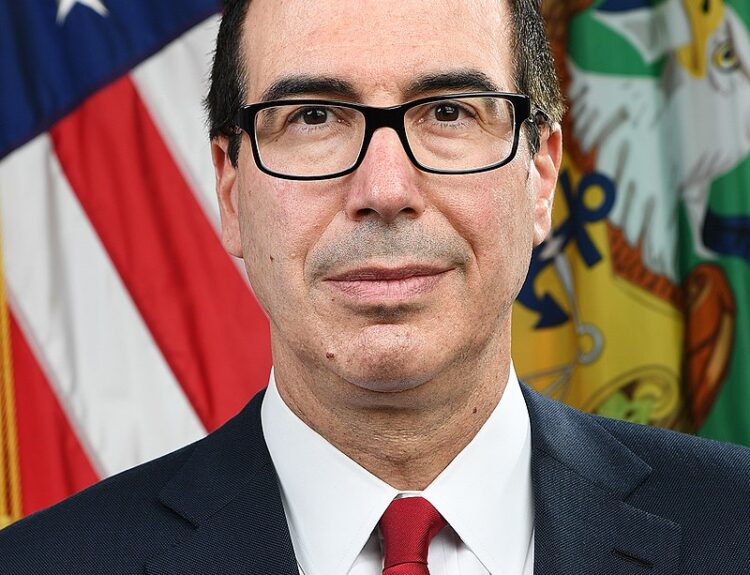U.S. support for ICC, which grew with Ukraine investigation, is collapsing after prosecutor targets Israeli leaders
- ICC prosecutor Karim Khan will seek charges against Israeli Prime Minister Benjamin Netanyahu for the Gaza war
- U.S. support for the ICC is collapsing after prosecutor targets Israeli leaders
- ICC’s independence may come at the cost of practical support and diplomatic legitimacy
- Senators Lindsey Graham and Chris Coons condemn Khan’s move against Netanyahu
- Israel denies allegations of war crimes and crimes against humanity
- U.S. officials emphasize the lack of equivalence between Israel and Hamas
- The ICC’s pursuit of the case may damage prospects for peace and have little chance of putting Netanyahu or Hamas leaders on trial
The International Criminal Court (ICC) has announced that it will seek charges against Israeli Prime Minister Benjamin Netanyahu for his role in the Gaza war. This move comes just a year after the ICC obtained an arrest warrant for Russian President Vladimir Putin over allegations related to Ukraine. While the ICC’s pursuit of these cases demonstrates its independence, it may come at the cost of practical support and diplomatic legitimacy from superpower backing.nnPreviously, the ICC had been shunned by Republicans and viewed skeptically by many Democrats. However, just weeks ago, the ICC was seen in Washington as part of the international effort to hold Russia accountable for its invasion of Ukraine. Senators Lindsey Graham and Chris Coons even worked together to secure U.S. funding for the ICC, something that would have been unthinkable in the past.nnHowever, the ICC’s decision to target Netanyahu and his defense chief, Yoav Gallant, for war crimes and crimes against humanity in Gaza has drawn condemnation from President Biden and the senators. They argue that the ICC has disregarded its obligation to act only when a nation is unable or unwilling to hold its own officials accountable. They believe that Israel’s legal system is capable of handling these cases.nnExperts have also criticized the ICC’s charges, stating that they ignore the complexities of the Gaza war and the challenges of fighting an armed force embedded in densely populated areas. While Israel could do more to facilitate humanitarian aid to Gaza, it is not legally obligated to do so in a way that would give rise to the allegations of crimes against humanity.nnICC prosecutor Karim Khan must obtain approval from a three-judge panel to issue arrest warrants, which he is also seeking for Hamas leaders Yahya Sinwar, Ismail Haniyeh, and Mohammed Deif. The panel is expected to decide on the warrants before the court’s recess in August.nnThe ICC’s pursuit of these cases has sparked debate and divided opinions. While some argue that the ICC is upholding international law and seeking accountability for war crimes, others fear that the indictments will only prolong the conflict and have little chance of actually putting Netanyahu or the Hamas leaders on trial.nnOverall, the ICC’s prosecution of Netanyahu risks losing support from the U.S. and damaging prospects for peace in the region.·
Factuality Level: 2
Factuality Justification: The article contains a significant amount of opinion, bias, and political perspective presented as fact. It lacks objectivity and provides a one-sided view of the situation without offering a balanced analysis. The information is heavily focused on the political implications and opinions of various individuals rather than providing a neutral and factual account of the events.·
Noise Level: 3
Noise Justification: The article provides a detailed analysis of the U.S. relationship with the International Criminal Court, the recent actions of the ICC prosecutor, and the reactions from various U.S. officials and experts. It explores the implications of the ICC’s decision to seek charges against Israeli Prime Minister Benjamin Netanyahu and provides insights into the complexities of international law and diplomacy.·
Key People: Karim Khan (ICC prosecutor), Benjamin Netanyahu (Israeli Prime Minister), Vladimir Putin (Russian President), Yoav Gallant (Israeli Defense Minister), Lindsey Graham (Senator), Chris Coons (Senator), Matthew Waxman (Columbia University law professor and national-security official), Bernie Sanders (Senator), David Scheffer (Representative of the U.S. at the 1998 conference in Rome), Mary Ellen O’Connell (Professor of international law at the University of Notre Dame)
Financial Relevance: No
Financial Markets Impacted: No
Financial Rating Justification: This article does not pertain to financial topics or events that impact financial markets or companies. It discusses the relationship between the U.S. and the International Criminal Court, and the ICC’s decision to seek charges against Israeli Prime Minister Benjamin Netanyahu. These are political and legal matters, not directly related to financial markets.·
Presence Of Extreme Event: No
Nature Of Extreme Event: No
Impact Rating Of The Extreme Event: No
Extreme Rating Justification: There is no extreme event mentioned in the article.·
 www.wsj.com
www.wsj.com 




